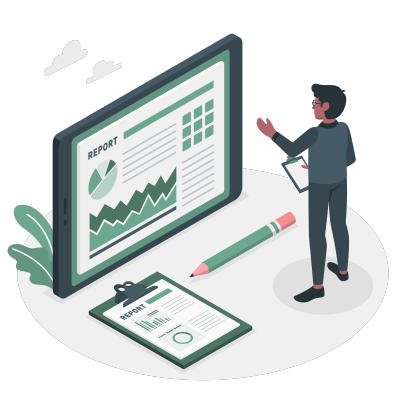Hotels are businesses that come in all shapes and sizes, and as such, they need to track different KPIs and performance metrics to measure success. While there is no one-size-fits-all list of KPIs for hotels, there are some that are more important than others. In this article, we will discuss the 7 most important KPIs and performance metrics to keep track of when running a hotel business.
What Are KPIs, and Why Are They Important?
But first, let’s discuss what KPIs are and why they are important. KPIs, or key performance indicators, are a way of measuring progress and success. They help businesses track their progress towards their goals and identify areas that need improvement.
The KPIs you use will depend on the goals of your business. For example, if your goal is to increase revenue, you would track KPIs such as average daily rate (ADR), revenue per available room (RevPAR), and occupancy rate (OR). However, if your goal is to improve customer satisfaction, you would track different KPIs such as average length of stay (ALOS) and cost per occupied room (CPOR).
No matter what your goals are, tracking KPIs is important because it allows you to see how well your business is doing and identify areas that need improvement.
7 Most Important KPIs and Performance Metrics
Now that we’ve discussed what KPIs are and why they are important, let’s take a look at the seven most important KPIs and performance metrics to keep track of when running a hotel business.
1. Average Daily Rate (ADR)
ADR is a measure of the average price paid for a room per night. It is important to track because it shows how much revenue your hotel is generating per room. To calculate ADR, simply take the total revenue generated by rooms divided by the number of rooms sold.
2. Revenue Per Available Room (RevPAR)
RevPAR is a measure of the average revenue generated per room available. It is important to track because it shows how effective your hotel is at generating revenue. To calculate RevPAR, take the total revenue generated by rooms divided by the number of rooms available.
3. Occupancy Rate (OR)
The occupancy rate is a measure of how many rooms are occupied at your hotel. It is important to track because it shows how effective your hotel is at selling rooms. To calculate the occupancy rate, divide the number of rooms sold by the number of rooms available.
4. Average Length Of Stay (ALOS)
The average length of stay is a measure of how long guests stay at your hotel. It is important to track because it shows how satisfied guests are with your hotel. To calculate the average length of stay, take the total number of nights stayed divided by the number of rooms sold.
5. Cost Per Occupied Room (CPOR)
The cost per occupied room is a measure of how much it costs to keep a room occupied. It is important to track because it shows how efficient your hotel is at using its resources. To calculate CPOR, take the total operating expenses divided by the number of rooms sold.
6. Adjusted Revenue Per Available Room (ARPAR)
Adjusted revenue per available room is a measure of the average revenue generated per room available after adjusting for things like discounts and promotions. It is important to track because it shows how effective your hotel is at generating revenue after taking into account these factors. To calculate ARPAR, take the total revenue generated by rooms divided by the number of rooms available after adjusting for discounts and promotions.
7. Gross Operating Profit Per Available Room (GOPPAR)
Gross operating profit is a measure of the profitability of your hotel business. It is important to track because it shows how much profit your hotel is making. To calculate GOP, take the total revenue generated by rooms minus the total operating expenses. This figure is then divided by the number of available rooms in your hotel to give you the GOPAR.
Final Thoughts
These are just some of the most important KPIs and performance metrics to keep track of when running a hotel business. There are many others that you may want to track as well, depending on your specific goals. But if you’re just getting started, these seven will give you a good foundation to work from.

